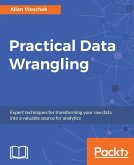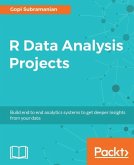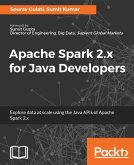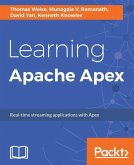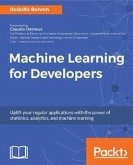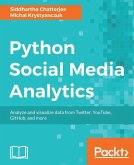About This Book
- Combine SAS with platforms such as Hadoop, SAP HANA, and Cloud Foundry-based platforms for effecient Big Data analytics
- Learn how to use the web browser-based SAS Studio and iPython Jupyter Notebook interfaces with SAS
- Practical, real-world examples on predictive modeling, forecasting, optimizing and reporting your Big Data analysis with SAS
SAS professionals and data analysts who wish to perform analytics on Big Data using SAS to gain actionable insights will find this book to be very useful. If you are a data science professional looking to perform large-scale analytics with SAS, this book will also help you. A basic understanding of SAS will be helpful, but is not mandatory.
What You Will Learn
- Configure a free version of SAS in order do hands-on exercises dealing with data management, analysis, and reporting.
- Understand the basic concepts of the SAS language which consists of the data step (for data preparation) and procedures (or PROCs) for analysis.
- Make use of the web browser based SAS Studio and iPython Jupyter Notebook interfaces for coding in the SAS, DS2, and FedSQL programming languages.
- Understand how the DS2 programming language plays an important role in Big Data preparation and analysis using SAS
- Integrate and work efficiently with Big Data platforms like Hadoop, SAP HANA, and cloud foundry based systems.
SAS has been recognized by Money Magazine and Payscale as one of the top business skills to learn in order to advance one's career. Through innovative data management, analytics, and business intelligence software and services, SAS helps customers solve their business problems by allowing them to make better decisions faster. This book introduces the reader to the SAS and how they can use SAS to perform efficient analysis on any size data, including Big Data.
The reader will learn how to prepare data for analysis, perform predictive, forecasting, and optimization analysis and then deploy or report on the results of these analyses. While performing the coding examples within this book the reader will learn how to use the web browser based SAS Studio and iPython Jupyter Notebook interfaces for working with SAS. Finally, the reader will learn how SAS's architecture is engineered and designed to scale up and/or out and be combined with the open source offerings such as Hadoop, Python, and R.
By the end of this book, you will be able to clearly understand how you can efficiently analyze Big Data using SAS.
Style and approach
The book starts off by introducing the reader to SAS and the SAS programming language which provides data management, analytical, and reporting capabilities. Most chapters include hands on examples which highlights how SAS provides The Power to Know©. The reader will learn that if they are looking to perform large-scale data analysis that SAS provides an open platform engineered and designed to scale both up and out which allows the power of SAS to combine with open source offerings such as Hadoop, Python, and R.
Dieser Download kann aus rechtlichen Gründen nur mit Rechnungsadresse in A, B, BG, CY, CZ, D, DK, EW, E, FIN, F, GR, HR, H, IRL, I, LT, L, LR, M, NL, PL, P, R, S, SLO, SK ausgeliefert werden.



